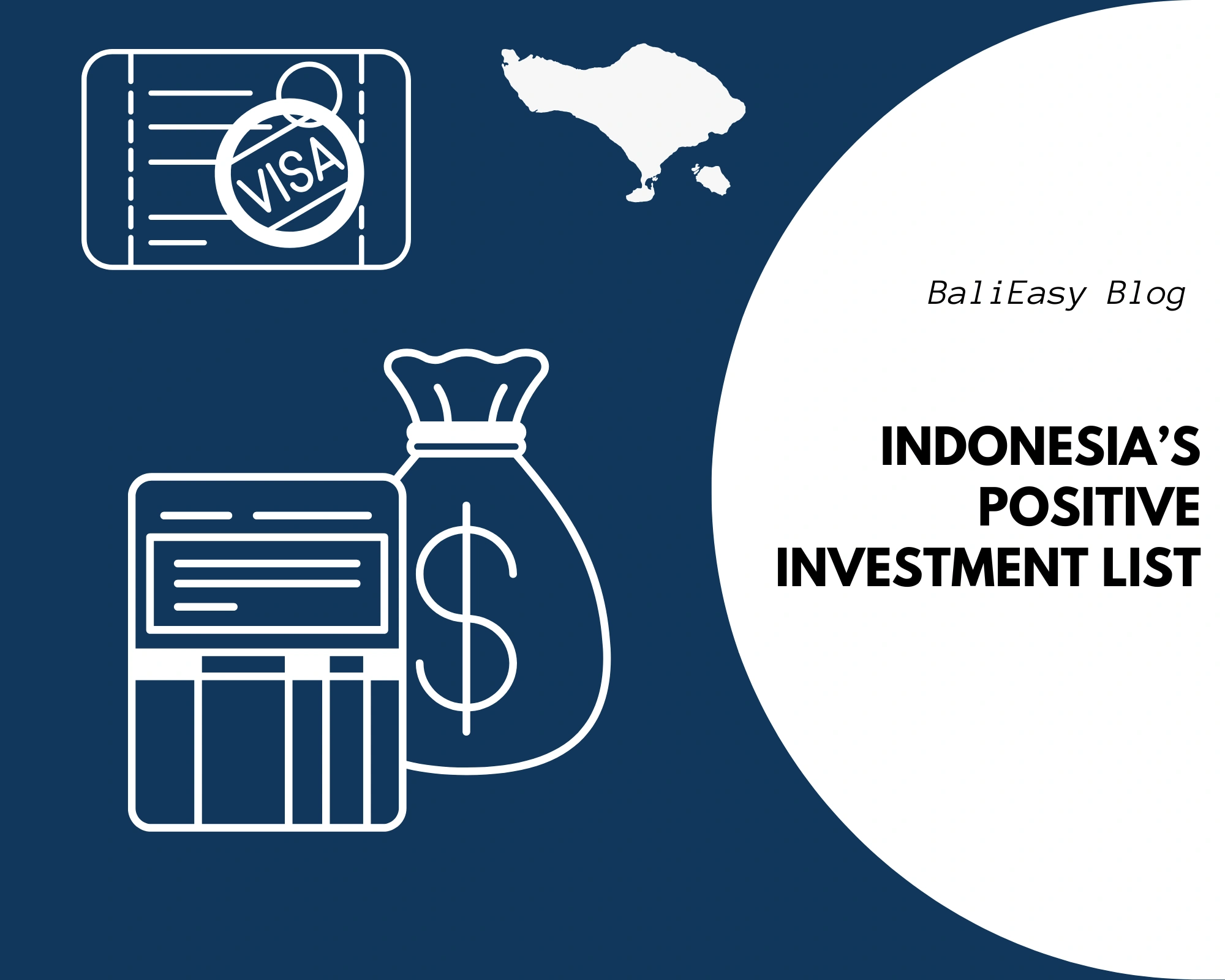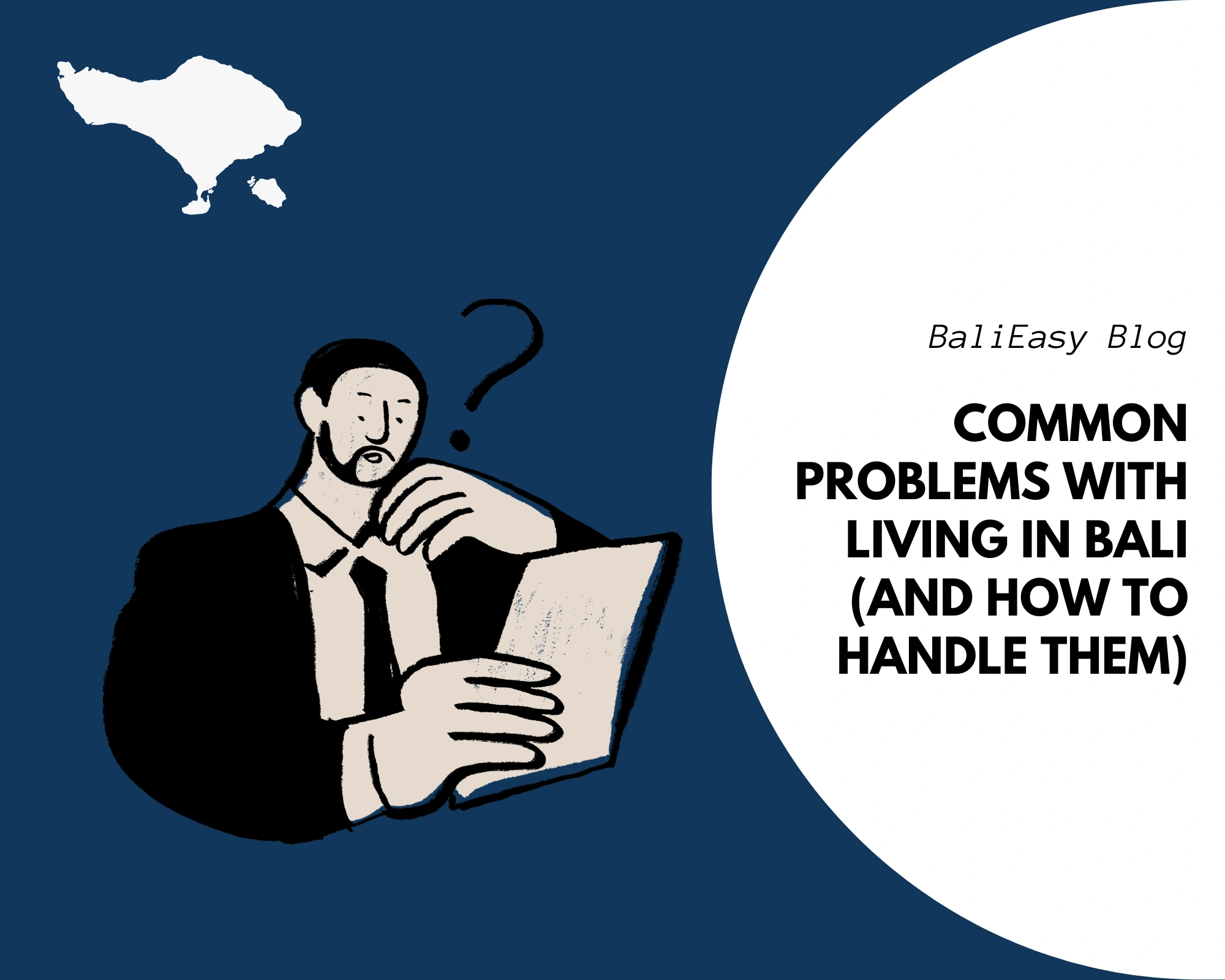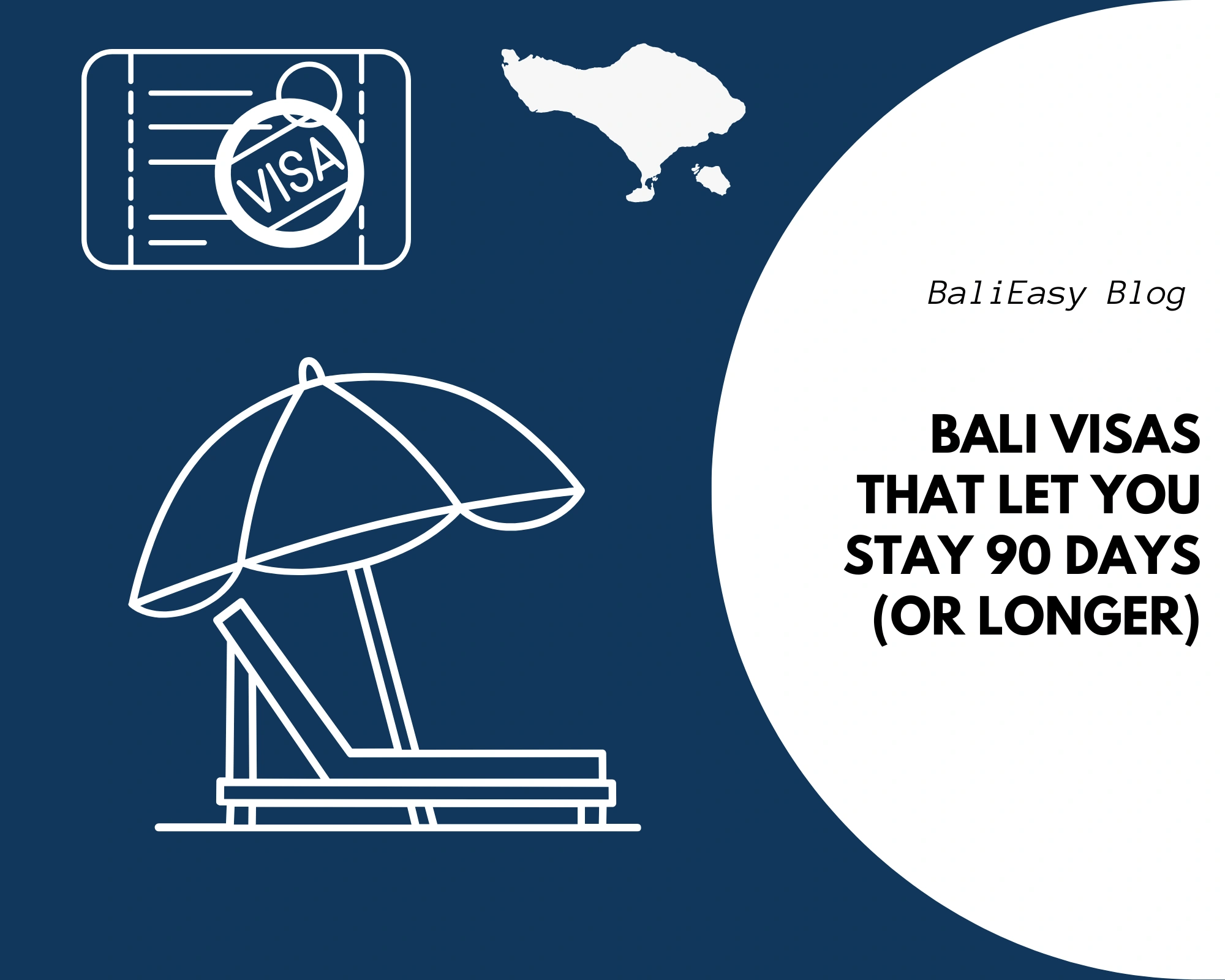
Indonesia’s Positive Investment List
Indonesia’s Positive Investment List is officially the Daftar Prioritas Investasi (DPI) inside Indonesia’s rules on Business Fields for Investment (Bidang

Quick Summary: Bali is a dream destination for many, but like anywhere, it has its quirks. If you’re considering a longer stay, it’s helpful to understand the challenges, and more importantly, how to deal with them. From navigating traffic to understanding visa rules, this guide walks you through the most common problems foreigners face in Bali and offers tips to make your experience smoother.
Bali’s traffic is real, especially in hotspots like Canggu, Seminyak, and Ubud. Roads are narrow and often shared by cars, scooters, and pedestrians. There’s no public bus network, and walkability can be limited.
But once you adjust, getting around becomes part of the adventure. Most long-term residents get used to riding scooters or using apps like Gojek and Grab.
What you can do:
Bali has struggled with waste management, especially during the rainy season when plastic washes into rivers and beaches. Air pollution from traffic and seasonal rice field burning can also be noticeable.
That said, many communities are working hard on cleanup efforts, and eco-conscious living is growing fast across the island.
What you can do:
Bali has decent healthcare for day-to-day needs. Local clinics and international hospitals are available in most urban areas. But for serious conditions, expats often fly to Jakarta or Singapore.
What you can do:
Need help with long-term stay planning? Here’s how to stay in Bali for 3 months or more
Indonesia’s visa rules can be tricky to navigate, especially for longer stays. Should you choose a Visa on Arrival, e-VOA, or a C1/211A? How long can each one be extended? What happens if you overstay?
The truth is, the visa bureaucracy in Indonesia is known for being inconsistent and sometimes confusing. Processes can vary depending on where you apply which can be stressful if you’re handling it on your own.
To make things more difficult, many official government websites in Indonesia have challenging user experience. Pages sometimes go down, forms may be unclear, and even basic information can be hard to find. That’s why having a reliable agent can make a big difference, not just for visas, but for any government-related tasks you might need help with during your stay.
That’s why it really helps to use a reliable visa agent who understands how the system works. Whether it’s for visa applications, extensions, or anything else involving government paperwork, having the right support can save you a lot of time and stress.
Visa BaliEasy is here to help with exactly that, guiding you through the process so you don’t have to figure it all out on your own.
What you can do:
Want to stay longer without the headache? Click here to get started with Visa BaliEasy
Internet in Bali can be slower than in many Western countries, and connection quality varies by area. While some homes and coworking spaces offer fiber-optic Wi-Fi, outages and uneven speeds are still common. Mobile data is essential for most travelers, but not all providers deliver good signal in every part of the island, especially in rural or coastal areas.
If you want strong and reliable mobile data across Bali, BaliEasy’s Telkomsel-powered eSIM is a smart choice. It gives you access to the island’s widest network coverage, works instantly on arrival, and keeps you connected even in harder-to-reach spots like Uluwatu, Amed, or Sidemen. Get your BaliEasy eSIM here and stay connected wherever you go.
Like many developing regions, corruption still exists in parts of daily life in Indonesia, and Bali is no exception. While it may not be something most short-term visitors notice, those staying longer, especially anyone dealing with business, permits, or property, may eventually encounter it.
These conditions can also influence broader issues such as waste management or road maintenance in certain areas, which don’t always reflect the level of funding available. Understanding how systems operate locally, including the informal aspects, is part of adapting to life in Bali.
What you can do:
Balinese culture is welcoming, but different from what many foreigners are used to. Social interactions, timelines, and business practices tend to be more relaxed.
Tourist pricing, also known as “bule tax,” can also be frustrating at first. And while many locals speak English in tourist zones, deeper cultural understanding takes time.
What you can do:
While Bali is still more affordable than many Western countries, prices have risen, especially in areas like Canggu and Seminyak. Villas, international schools, co-working spaces, and imported food can make life more expensive than expected.
What you can do:
Many expats experience “visa limbo”, not knowing how long they’ll stay, which makes building long-term friendships harder. While English is common in Canggu or Uluwatu, it’s less spoken in rural villages.
What you can do:
Bali continues to draw foreigners not just for its beauty, but for the unique balance it offers: affordable living, access to nature, and a strong community of expats, remote workers, and creatives. It’s one of the few places where you can keep costs low while enjoying comforts like coworking spaces, wellness studios, and diverse food options, all within reach of beaches, rice fields, or quiet inland villages.
Living here also means tapping into a slower, more intentional lifestyle. While day-to-day systems may work differently than you’re used to, many long-term residents find that once you’ve set up essentials (like housing, transport, and a reliable internet or mobile connection) Bali becomes an incredibly livable base, whether for a few months or a few years.
Like any destination, Bali comes with its own learning curve. Issues like traffic, visa bureaucracy, or infrastructure gaps can be frustrating at first. But with the right mindset and preparation, those challenges become manageable, especially when balanced against what Bali offers in return: a rich cultural environment, friendly communities, and a lifestyle that encourages balance and well-being.
One of the easiest ways to simplify your transition is by getting your visa sorted early and correctly. That’s where Visa BaliEasy comes in. From choosing the right visa type to handling renewals and reminders, our team helps you avoid confusion, delays, and costly overstays, so you can focus on enjoying your time in Bali, not paperwork.
With the right support Bali isn’t just a place to visit, it can be a place to live.
👉 Explore your visa options with Visa BaliEasy and get started today.

Indonesia’s Positive Investment List is officially the Daftar Prioritas Investasi (DPI) inside Indonesia’s rules on Business Fields for Investment (Bidang

For 90 days in Bali without leaving Indonesia, the most practical option for tourists is the C1 Tourist Visit Visa
WhatsApp us
📌 How It Works: